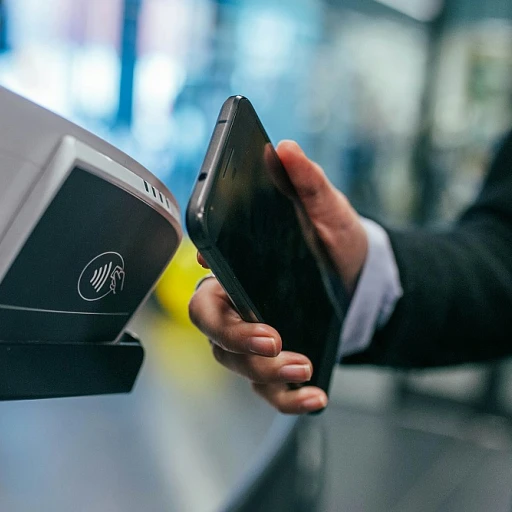
Understanding the Restaurant VC Ecosystem
Decoding the Restaurant VC Ecosystem
The restaurant venture capital landscape is a dynamic and ever-evolving space. Investors, ranging from angel investors to large private equity firms, are always on the lookout for promising opportunities in the food and beverage industry. Understanding this ecosystem requires an in-depth look at the various stages of investment. Firstly, the early stage or pre-seed phase is crucial for budding restaurant ventures. In this stage, restaurant entrepreneurs often seek seed capital to bring their business ideas to life. This initial funding round helps them lay the groundwork, covering expenses such as product development, software, technology, and initial marketing efforts. As restaurant ventures progress, they may enter a series of funding rounds. Each subsequent round—commonly referred to as seed series or Series A, B, and so forth—aims to provide more substantial capital to scale the restaurant business further. Investors in these stages are typically more interested in concrete data that demonstrates growth potential and market viability. For restaurant owners, positioning their business for investment involves highlighting their unique value proposition in the bustling restaurant industry. Identifying emerging trends like food delivery, incorporating innovative services, and leveraging consumer internet technologies can make a significant impact. Restaurants that effectively integrate these elements often stand out in the eyes of venture capitalists. Furthermore, the strategic role of venture capital partnerships cannot be overlooked. These partners not only inject capital but also bring expertise, market insights, and valuable networks, contributing to the venture's growth and success. For those looking to explore opportunities in early stage or growth stages of their restaurant ventures, attending industry events can provide insights into market trends and connect them with potential investors. An event like Miami Tech Week can be particularly advantageous, offering entrepreneurs a chance to engage with venture capitalists and other industry stalwarts in the United States.Positioning Your Restaurant for Investment
Strategic Positioning for Success
Positioning your restaurant for investment is a critical step in securing venture capital. Investors are on the lookout for promising early stage ventures in the restaurant industry, particularly those innovatively integrating food and beverage with technology. A focus on consumer internet solutions, such as delivery and software services, can significantly enhance a restaurant's appeal to potential investors.
In the United States, successful ventures often begin by understanding the specific demands of the market. The emergence of private equity and venture capitalists, particularly those interested in food delivery and fintech seed opportunities, underscores the need to align your restaurant’s value proposition with market trends.
- Highlight Unique Offerings: Investors are interested in businesses that stand out. Whether it’s through unique food and beverage concepts, innovative service delivery systems, or leveraging technology such as SaaS solutions, differentiation is key.
- Demonstrate Strong Market Potential: Use data to showcase the growth potential of your restaurant. This can include consumer trends, projected earnings, and market analysis. Highlighting your realistic pre seed and seed series funding needs can help investors envision a clear path to profitability.
- Emphasize Scalability and Growth: Investors seek ventures capable of expanding beyond initial offerings. Illustrate how your restaurant's business model can scale, potentially entering new markets or increasing share in existing ones.
- Articulate a Strong Financial Strategy: Clearly outline your financial roadmap, including how funds from various funding rounds will be utilized. This transparency can reassure venture partners about the management of their capital investment.
By effectively positioning your restaurant to align with investor interests and market demands, you enhance your chance of securing funding. Venture partners are more likely to engage with opportunities that demonstrate a strategic fit and high growth potential. For further insights on positioning within emerging markets, consider exploring the strategic landscape insights available here.
Crafting a Compelling Business Plan
Structuring a Persuasive Pitch
As you navigate the restaurant venture capital landscape, crafting a persuasive pitch is crucial to capturing the attention and interest of potential investors. Your business plan is more than a formal document—it’s a dynamic showcase of your vision, strategy, and capacity to drive growth in a competitive industry. Given the increasing interest in restaurant ventures, from food delivery startups to innovative SaaS applications in the food and beverage sector, your pitch must resonate with venture capitalists and angel investors who seek potential high returns.
Highlighting Your Value Proposition
Investors are particularly interested in the unique value proposition your restaurant offers. Whether it’s an innovative food concept, a tech-driven delivery service, or a novel culinary experience, clearly articulate how your business stands out in the crowded restaurant industry. Distinctive features, such as sustainable sourcing or leveraging cutting-edge technology, could position your business favorably in the eyes of venture partners.
Demonstrating Market Understanding
To effectively demonstrate market understanding, utilize data to support your business plan. Investors are keen on ventures backed by thorough market research, showing comprehension of industry trends and potential challenges. This understanding not only builds trust but strategically aligns your restaurant with current consumer internet behaviors and preferences.
Articulating Revenue Streams and Growth Potential
Detailing the various revenue streams and showcasing growth potential is fundamental. Discuss how you plan to monetize your service or product, whether through direct sales, subscription models, or partnerships in the food and beverage ecosystem. Highlight past successes, current financial metrics, and projected outcomes to illustrate the viability of your business model.
Presenting a Robust Financial Outline
Capitalize on illustrating a comprehensive financial portfolio, including how you plan to effectively utilize the seed capital or the investments raised in funding rounds from pre-seed to series funding stages. A well-structured outline can convince private equity and venture capitalists of your ability to meet financial targets and ensure return on investments. Understanding the scale of VC investments will further inform and refine your financial strategies.
Strategically Planning Milestones
Finally, set realistic milestones that align with your long-term vision. Having a timeline for expansion plans, technology upgrades, or market penetration helps build investor confidence by showcasing tangible goals to guide growth, mitigate risks, and overcome the challenges associated with entering the early stage restaurant venture space.
Building Relationships with Investors
Fostering Investor Relationships
Cultivating meaningful connections with investors is crucial for securing capital in the competitive restaurant venture capital landscape. Establishing trust and understanding can turn potential investors into long-term partners who share your vision. Here are some strategies to consider:- Present Transparency: Clearly articulate your business model and share data-driven insights into your restaurant's performance. Transparency about financials, growth trajectories, and market positioning can build investor confidence.
- Showcase Industry Expertise: Highlight your team's knowledge and experience in the restaurant sector. This not only assures investors of your strategic capabilities but also strengthens your restaurant venture's appeal.
- Engagement and Communication: Keep investors informed with regular updates about the business, especially during key stages of growth such as seed, pre-seed, and series funding rounds. Active communication can lead to more substantial investor involvement when challenges arise.
- Leverage Technology: Utilize software and technology platforms to streamline investor communication and provide them with efficient access to important data. This can enhance the overall investment experience.
- Networking Events and Conferences: Participate in industry-specific gatherings to meet potential investors and venture partners. Networking within the food and beverage industry is invaluable to understand prevailing trends and investor sentiments.
Mitigating Risks and Addressing Challenges
Identifying Potential Risks in the Restaurant Venture
In the dynamic world of restaurant ventures, identifying potential risks is crucial for securing investment and ensuring long-term success. The restaurant industry is fraught with challenges, from fluctuating consumer preferences to regulatory changes. Understanding these risks can help you prepare and present a more robust case to investors.
- Market Volatility: The food and beverage sector is highly sensitive to economic shifts. Investors are keenly aware of this, so demonstrating how your business can adapt to market changes is essential.
- Operational Challenges: Efficient operations are critical. Highlight your strategies for managing supply chain disruptions, staffing issues, and maintaining quality service.
- Regulatory Compliance: Navigating the complex web of food safety and labor laws is vital. Show investors your commitment to compliance and how you stay updated with changes.
Addressing Challenges with Strategic Planning
Once risks are identified, addressing them through strategic planning becomes imperative. Investors look for businesses that not only recognize challenges but also have actionable plans to overcome them.
- Data-Driven Decisions: Utilize data analytics to make informed decisions. This approach can help in optimizing menu offerings and improving customer experiences.
- Technology Integration: Embrace technology, such as restaurant management software and food delivery platforms, to streamline operations and enhance customer engagement.
- Scalable Solutions: Present scalable solutions that can be implemented as your business grows, ensuring that your venture remains agile and responsive to change.
Collaborating with Investors for Risk Mitigation
Building strong relationships with venture partners and investors is not just about securing capital; it's about leveraging their expertise to mitigate risks. Investors often bring valuable insights and resources that can help navigate the complexities of the restaurant industry.
- Open Communication: Maintain transparent communication with your investors. Regular updates on business performance and challenges can foster trust and collaboration.
- Leveraging Expertise: Tap into the knowledge and networks of venture capitalists and angel investors. Their experience in the food and beverage sector can provide guidance on best practices and industry trends.
- Strategic Partnerships: Consider forming strategic partnerships with investors who have a vested interest in your success. This can lead to shared resources and co-investment opportunities.
Leveraging VC Partnerships for Growth
Maximizing Partnerships for Sustainable Growth
Navigating the world of restaurant venture capital entails more than just securing funds—it involves creating meaningful partnerships with venture capitalists. These collaborations can provide your business with not only financial backing but also strategic advantages that propel growth. To harness the full potential of these partnerships, consider integrating the following strategies:- Align Goals and Expectations: Begin by establishing clear alignment between the objectives of your restaurant and the investment goals of your venture capital partners. This ensures a unified vision, reducing the risk of misaligned priorities in the future.
- Leverage Industry Expertise: Many venture capitalists bring a wealth of knowledge about the restaurant and food beverage industry, along with insights from their investments in similar ventures. Utilize their expertise to refine your strategies, adopt innovative technology like food delivery software, and improve operational efficiencies.
- Data-Driven Decisions: VC partners frequently have access to extensive data analytics. Embrace these insights to drive decisions, tailor customer experiences, and optimize your restaurant's offerings. Data utilization can be a game-changer in aligning products with market demand and improving customer satisfaction.
- Capitalize on Networks: VCs have vast networks of contacts, from other investors to potential partners and industry experts. These networks can be invaluable for expanding your business, securing additional funding rounds, and forming strategic alliances.
- Invest in Growth: With venture capital backing, you have the resources to explore new avenues such as developing a consumer internet presence or enhancing your restaurant's services with SaaS solutions. Don’t shy away from investing in areas like food beverage technology that can lead to exponential growth.



-large-teaser.webp)









